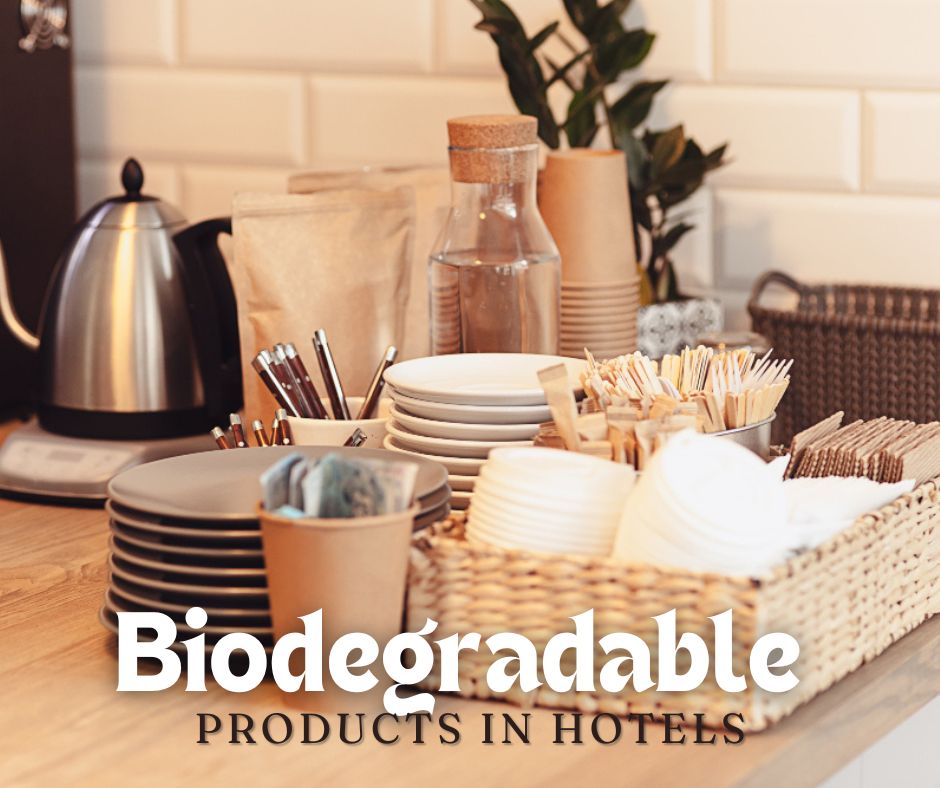As the world grapples with the challenges of environmental degradation and waste management, the concept of the circular economy is gaining traction. Unlike the traditional linear economy, which follows a 'take, make, dispose' model, the circular economy aims to keep resources in use for as long as possible, extract maximum value, and then recover and regenerate products and materials at the end of their lifecycle. Biodegradable tableware, particularly those made from sugarcane bagasse, plays a crucial role in this sustainable framework, offering a compelling alternative to traditional disposables.
Understanding the Circular Economy
The circular economy revolves around three core principles:
- Design Out Waste and Pollution: Products are designed to minimize waste and environmental impact.
- Keep Products and Materials in Use: Materials are reused, refurbished, and recycled to extend their lifecycle.
- Regenerate Natural Systems: End-of-life products contribute to ecological regeneration, such as through composting.
Biodegradable tableware made from sugarcane bagasse aligns seamlessly with these principles. Derived from the fibrous residue left after sugar extraction from sugarcane, bagasse is a renewable resource that would otherwise be considered waste. Transforming it into tableware not only diverts waste from landfills but also creates a product that can decompose naturally, returning valuable nutrients to the soil.
Key Points:
- The circular economy focuses on waste reduction, resource efficiency, and regeneration.
- Biodegradable tableware made from sugarcane bagasse supports all three principles.
- Bagasse is a by-product of sugar production, making it a sustainable raw material.
Biodegradable Tableware in the Circular Economy
Biodegradable tableware integrates into the circular economy by offering a sustainable lifecycle from production to disposal. Here’s how:
Production Phase:
- Utilization of Agricultural Waste: Sugarcane bagasse, a by-product of the sugar industry, is repurposed into tableware, turning waste into a valuable resource.
- Energy-Efficient Processes: Modern manufacturing techniques minimize energy use, aligning with the circular economy’s goal of reducing environmental impact.
Usage Phase:
- Eco-Friendly Functionality: Biodegradable tableware serves the same function as traditional disposables but without the environmental cost. It is sturdy, reliable, and suitable for various dining needs.
- Consumer Acceptance: Increasing awareness about environmental issues drives consumer preference for products that contribute to sustainability.
End-of-Life Phase:
- Natural Decomposition: Unlike plastic, which can persist in the environment for centuries, sugarcane bagasse products decompose naturally within months. This aligns with the circular economy’s aim to regenerate natural systems.
- Compostability: Bagasse tableware can be composted, breaking down into organic matter that enriches the soil and supports plant growth, thus closing the loop of the circular economy.
Key Points:
- Sugarcane bagasse repurposes waste and minimizes energy use during production.
- Biodegradable tableware provides eco-friendly functionality comparable to traditional disposables.
- Natural decomposition and compostability ensure that products regenerate natural systems.
Economic and Environmental Benefits
Adopting biodegradable tableware made from sugarcane bagasse offers significant economic and environmental benefits:
Reduced Waste Management Costs:
- Lower Landfill Usage: By decomposing naturally, biodegradable tableware reduces the volume of waste sent to landfills, cutting down associated costs and environmental impacts.
- Simplified Waste Segregation: Businesses and consumers benefit from easier waste segregation, as biodegradable products can be composted alongside organic waste.
Enhanced Resource Efficiency:
- Less Reliance on Virgin Materials: Using agricultural by-products reduces the need for virgin materials, preserving natural resources and lowering the overall carbon footprint of product manufacturing.
- Circular Resource Flow: The nutrients from composted biodegradable tableware enhance soil health, promoting a sustainable cycle of growth and renewal.
Positive Brand Image and Customer Engagement:
- Eco-Friendly Brand Positioning: Businesses using biodegradable tableware can differentiate themselves as eco-conscious, attracting customers who value sustainability.
- Consumer Loyalty: Demonstrating a commitment to environmental responsibility can foster stronger customer loyalty and potentially increase sales.
Key Points:
- Biodegradable tableware reduces landfill waste and simplifies waste management.
- Utilizing bagasse enhances resource efficiency and promotes a circular resource flow.
- Positive brand image and customer loyalty are enhanced through sustainable practices.
Challenges and Solutions
While the benefits are clear, transitioning to biodegradable tableware is not without challenges. However, solutions are emerging to address these issues:
Cost Considerations:
- Initial Investment: The initial cost of biodegradable products can be higher than traditional plastics. However, as demand increases and production scales up, prices are expected to decrease.
- Long-Term Savings: Businesses can offset initial costs through long-term savings in waste management and potential government incentives for sustainable practices.
Consumer Awareness:
- Education and Marketing: Raising awareness about the benefits of biodegradable tableware is crucial. Clear labeling and educational campaigns can help consumers understand the value and proper disposal methods for these products.
Infrastructure and Composting Facilities:
- Improving Access: Expanding access to industrial composting facilities is essential for maximizing the benefits of biodegradable tableware. Governments and businesses can collaborate to develop the necessary infrastructure.
Key Points:
- Initial costs may be higher, but long-term savings and scalability offer economic benefits.
- Education and marketing are vital for increasing consumer awareness and proper disposal.
- Developing composting infrastructure enhances the efficacy of biodegradable products.
Conclusion
Biodegradable tableware made from sugarcane bagasse embodies the principles of the circular economy, offering a sustainable alternative to traditional disposable tableware. By transforming agricultural waste into a valuable resource, promoting natural decomposition, and contributing to soil regeneration, these products support a closed-loop system that benefits both the environment and the economy.
As businesses and consumers increasingly embrace the circular economy, the role of biodegradable tableware will become even more significant. It not only addresses pressing environmental challenges but also aligns with the evolving expectations of a society that values sustainability. By integrating these eco-friendly solutions into their operations, food service establishments can play a pivotal role in shaping a greener, more resilient future.





Comments